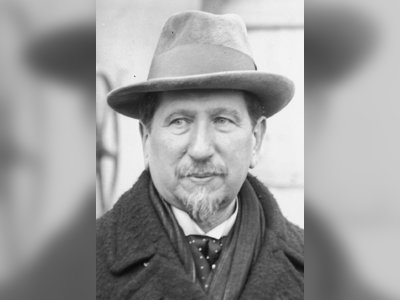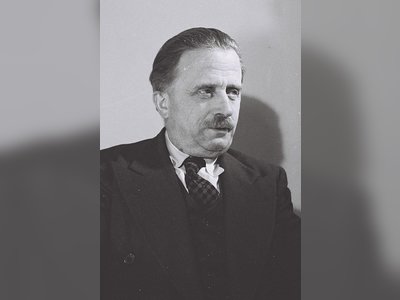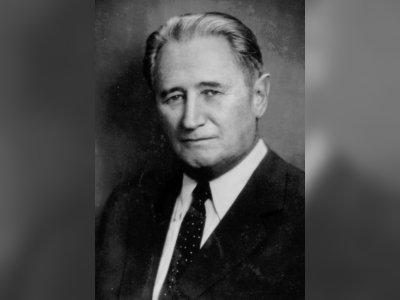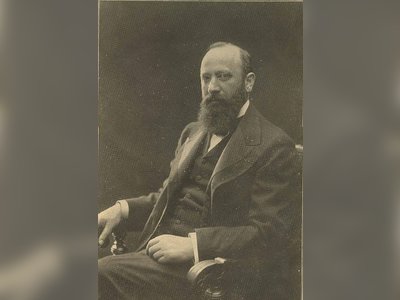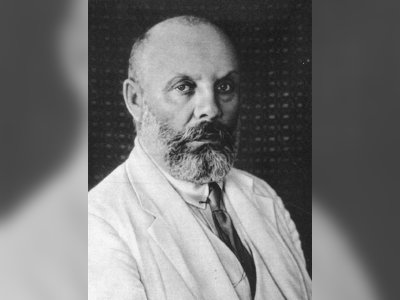Ida Nudel: The Angel of Soviet Dissent
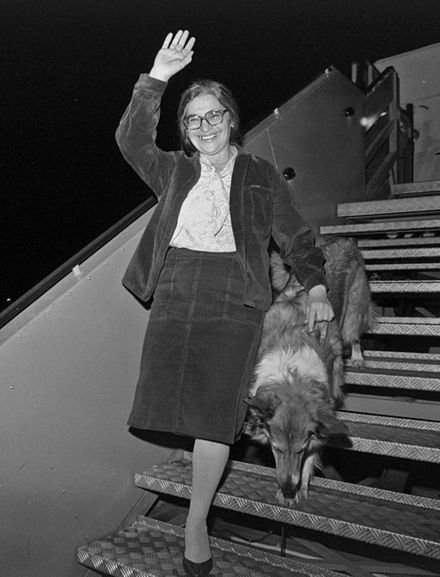
Ida Nudel (Russian: Ида Нудель; April 27, 1931 – September 14, 2021) was a prominent figure in the Soviet dissident movement of the 1970s and 1980s and an emblematic advocate for the rights of Jews in the Soviet Union.
Biography
Ida Nudel was born in 1931 in a suburb of Moscow to Chaya, a kindergarten teacher, and Yakov, an officer in the Red Army. At just nine months old, she was sent to live with her grandparents in the Jewish town of Zhianniksy, where Yiddish was the primary language. When she was three years old, her entire family relocated to Moscow, but she retained her mother's Yiddish heritage.
Ida and her younger sister Elena attended non-Jewish schools, but at home, they upheld Jewish traditions, particularly during holidays and festivals. During the summer, the girls spent time at their grandparents' house, where they were exposed to a rich Jewish world that was largely unknown to them in Moscow. Tragically, their father fell in combat during World War II when Ida was 12 and Elena was 10.
In her adulthood, Ida studied economics at Moscow University. In 1953, during her studies, the infamous "Doctors' Plot" trial occurred. Nine doctors, including six Jews, were accused of being part of a Jewish conspiracy linked to the Joint Distribution Committee, which was suspected of attempting to poison Soviet leaders.
It was alleged that these Jewish doctors had caused the deaths of two Soviet leaders, one of whom was Andrei Zhdanov, and now sought to kill five senior military officers. This led to an increase in anti-Semitic sentiment in Soviet society. Nudel, who was the only Jewish student in her university class, faced discrimination from both teachers and students, which drew her closer to her Jewish identity.
Political-Zionist Activities in Russia
At that time, there were approximately three million Jews living in the Soviet Union. Like many other Jews who sought to immigrate to Israel and were denied, Ida Nudel became politically active following the failed attempt to hijack an empty plane (Operation Wedding) organized by Eduard Kuznetsov and others on June 15, 1970.
In 1971, Ida Nudel's mother passed away, and that same year, she and her sister, Elena, applied to the authorities for permission to leave the Soviet Union and move to Israel.
Elena and her husband received approval, but Ida, who was single, was denied. She continued to submit exit visa applications, but they were repeatedly rejected. In 1972, her family immigrated to Israel, and that same year, Nudel was dismissed from her job as an economist for what was described as "harming the Russian soul."
During the summer of 1972, Nudel organized a hunger strike at the central office of the Communist Party in Moscow to protest the arrest of Zionist activist Vladimir Markman. After four days, the authorities forcibly ended the strike.
Nudel corresponded with her imprisoned compatriots, sending them books, medicine, and food. She asked visitors from around the world to provide items that the prisoners needed and could exchange with the guards, such as vitamins, warm underwear, and chocolate.
She also requested pens, cigarettes, and 3D glasses that could be traded with the prison staff in exchange for providing the prisoners with these items. Additionally, Nudel appealed on behalf of the prisoners to the authorities in Moscow and represented them before camp and prison administrators. The prisoners affectionately called her "Mama" and "The Angel of Mercy."
Another facet of her activism involved organizing protests and meetings with foreigners visiting Moscow, through which she exposed the fundamental human rights violations against prisoners in the Soviet Union.
Nudel's persistent and unwavering activism made her a symbol of the struggle for Soviet Jews' right to immigrate to Israel and for human rights in the Soviet Union. In the Western world, she became known as "The Angel of Soviet Dissent."
A group of Jewish women from the United Kingdom called the "35s Group" campaigned for Nudel's visa approval. They chained themselves to the gates of the Soviet embassy in London and demonstrated in front of Soviet Foreign Minister Andrei Gromyko when he visited the city.
In September 1976, "Ida Nudel Week" was observed in various Western countries. Group members organized demonstrations outside Soviet government facilities in Western countries, staged a play called "The Interview" by playwright Alan Silito, and rang church bells to draw attention to her cause in several Western cities.
The Soviet authorities viewed Nudel's activities unfavorably, subjecting her to surveillance, wiretapping, and conducting searches of her home. For nearly seven years, she lived in constant fear of being arrested and imprisoned by the authorities.
On January 11, 1974, Nudel was summoned to a 45-second meeting with Vadim Krymsky, an officer of the KGB in Moscow. During the brief encounter, Krymsky told her that her political activities were unrelated to her exit visa denial, suggesting that she might leave the country anytime depending on the circumstances.
Arrest and Exile to Siberia
In 1978, Nudel was sentenced to four years of harsh exile in the remote village of Krivosheino in the Tomsk region of Siberia. While she had mentally prepared herself for a long imprisonment, adjusting to her new circumstances was not easy.
Nudel had to endure the harsh conditions of her exile, including snow, freezing temperatures, and isolation from family and friends. The local water was contaminated, and she had to purify it for drinking. Furthermore, she was the only woman in the village, living close to dangerous male prisoners.
She once revealed that she slept with a knife under her mattress, which was intended for her protection rather than aggression. During her imprisonment, Nudel was internationally recognized as a "refusenik," drawing widespread attention.
The Siberian village was like an open prison, with no fences, but the remote location and harsh conditions prevented regular contact with the outside world. However, visits to the prisoners under various restrictions were allowed.
Physicist Yevgeny Tzirulnik (now known as Tuvia Tzirulnik), who founded Moscow's first Jewish children's garden in the mid-1970s, had known Nudel during their shared activism. He visited her five times in Siberia, enduring long train journeys to bring her supplies and provisions, including preserved food.
In the winter of 1979, about six months into her exile, Tuvia Tzirulnik managed to clandestinely film Nudel using an 8mm camera. This was in violation of Soviet law, and Tzirulnik risked imprisonment himself.
The footage depicted the challenging conditions of Nudel's exile in Siberia and included an interview with Nudel, where she explained the reasons behind her arrest. Nudel claimed that despite her suffering, she was content because her efforts had allowed thousands of Jews to leave the Soviet Union and immigrate to Israel.
She also tried to clarify the motivations that led her to oppose the authorities despite the risks. She believed that many of her friends viewed her activism as a spontaneous act rather than a carefully considered decision.
In Siberia, Nudel faced extreme conditions and isolation, but she remained resolute in her commitment to the cause. Her unwavering determination made her an enduring symbol of the struggle for Soviet Jewish emigration rights and human rights within the Soviet Union. She passed away on September 14, 2021, but her legacy continues to inspire those who champion the cause of freedom and justice.
- אידה נודלhe.wikipedia.org
